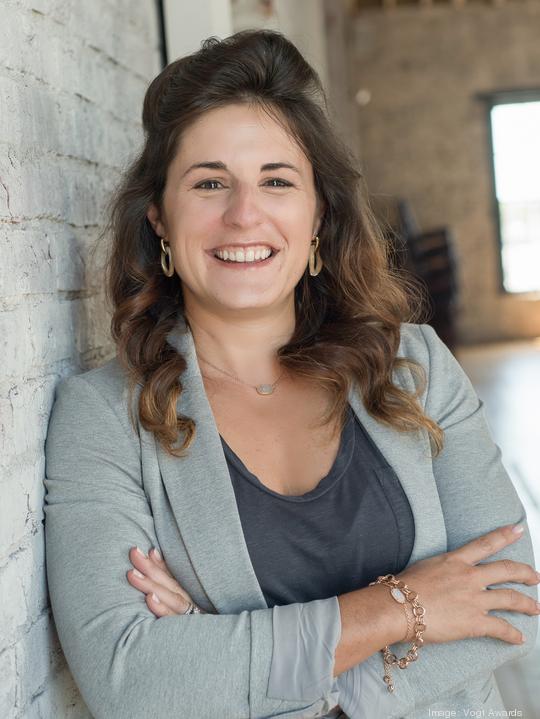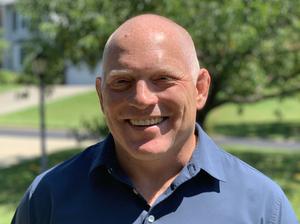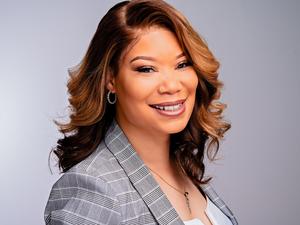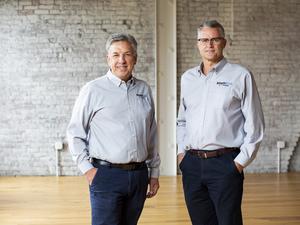
Lydia Henshaw had a certain level of self-confidence when she first walked in the doors at Procter & Gamble.
She had just exited her first startup, Sow Organic Inc. — which was acquired for $900,000 in 2018 — and was ready to take on an innovation role within the Cincinnati-based Fortune 50 company. After all, she had experience with big technology systems through her previous innovation roles at the U.S. Department of Defense and the United States Agency for International Development.
In spite of those career accomplishments, Henshaw said she found herself struggling to fit in at P&G.
"At P&G, I fell flat on my face," she said. "The idea of building solutions for rapid prototyping and rapid feedback to help solve problems was not new to me, but P&G was just an incredibly different culture than I have experienced. I had my own personal mental health challenge there, which became my 'why' behind Resolv."
Resolv, an integrated platform that aims to improve mental health outcomes for youth and young adults through peer support, got its start as Moxie Girl in 2019. Henshaw left her role at P&G and teamed up with fellow mother and executive coach Heather Moster to found the company, which at the time was focused on serving those who identify as female.
From the beginning, Henshaw said they were frequently asked, "What about boys?" She knew then that one day, there would be an opportunity to expand the platform's reach.
That opportunity came a bit faster than anticipated, as the coronavirus pandemic adversely impacted the mental health of, well, almost everyone — but especially the mental wellbeing of children and young adults.
According to early findings from a 2021 international survey of children and adults in 21 countries conducted by UNICEF and Gallup, a median of 1 in 5 young people aged 15 to 24 surveyed said they often feel depressed or have little interest in doing things. That's in addition to the 1 in 7 young people aged 10 to 19 that live with a diagnosed mental disorder, according to latest estimates.
"Throughout the pandemic, we realized we have a tool and a solution that youth as a whole can benefit from," Henshaw said, noting the technology was also rebuilt to be more inclusive and accessible as a result of the rebrand. "We're delivering an alternative solution... we're really creating a new category for mental wellness with peer support."
Peer support is so effective because of the shared lived experiences of the peer supporter to the individual that they are serving, and because of the proximity in age between the individual and their peer supporter, which have been trained and certified by State Departments of Behavioral Health, Henshaw continued. That's why Resolv sees retention rates of 90% in its virtual programs, compared to 50% to 70% retention in traditional telethepary.
"The role of a peer supporter is to use their story to give hope and show that recovery is possible," she said. "When you're able to look in the phone and talk with someone that knows what it was like to be a 17-year-old, who knows what it's like to couch surf, who knows what it's like to be homeless and who knows what it's like in the foster care system, you're able to connect in a way that brings empathy. Even well-intentioned adults in that individual's life or even well-intentioned clinicians can't connect with them on that level."
Resolv offers a handful of six-week online programs that take on a variety of mental health challenges, such as stress and anxiety. Each program includes individual and group peer support, evidence-based video and audio topics, a goal plan and access mobile app that has goal setting and tracking, wellness assessments and personal resources.
In 2022, Henshaw said Resolv's main focus will be on increasing access by growing its direct-to-consumer channel and strengthening its visibility in the mental health space as a new category.
The company intends to raise a seed round next year, too. Prior to the rebrand, Moxie Girl was a Vogt Award and Render Competition winner in 2020, which came with a combined $125,000 in capital.









